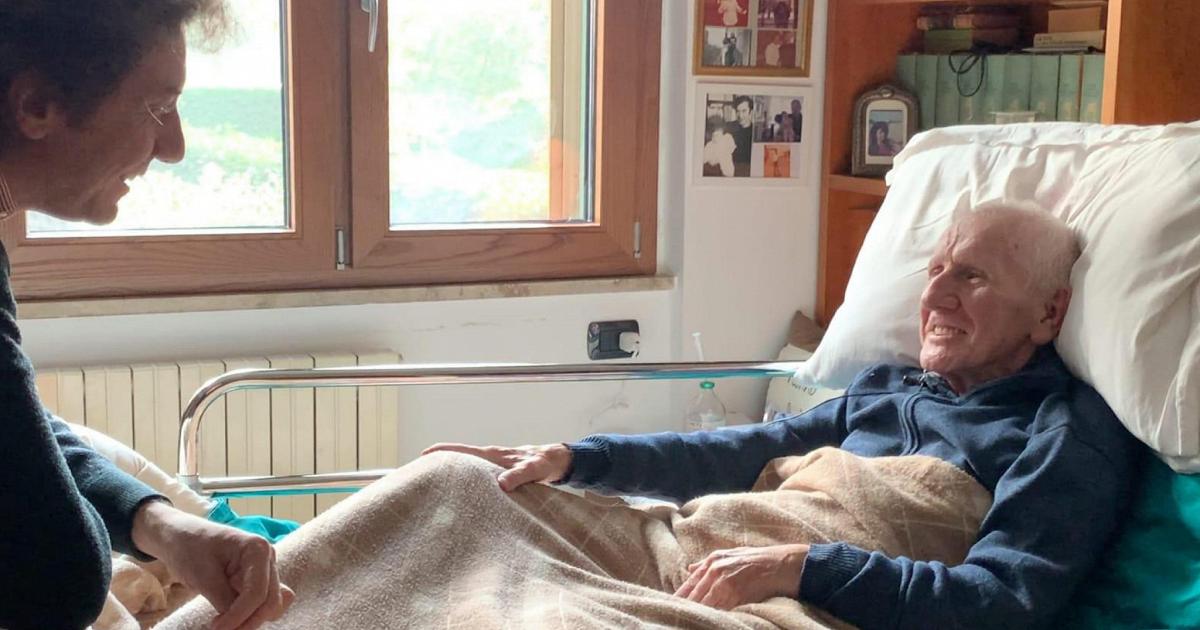The treasurer of the Luca Coscioni Association, Marco Cappato, reported himself this morning to the carabinieri of the Duomo company in Milan for having accompanied Mr. Romano, an 82-year-old resident of Peschiera Borromeo to Switzerland, suffering from a serious form of Parkinson's and not kept alive for life-sustaining treatments, for assisted suicide.
"It is unworthy for a civilized country to continue to tolerate the exile of death in clandestinity", the treasurer of the association Luca Coscioni has repeatedly said.
Cappato presented himself with the lawyer and secretary of the Association, Filomena Gallo in the same barracks where last August he reported himself for having accompanied Mrs. Elena terminally ill with cancer to Switzerland and where he presented himself for the case five years ago by dj Fabo, Fabiano Antoniani, an assisted suicide that started the discussion on the end of life.
Now, as he himself pointed out, he risks up to "12 years in prison".
"Compared to last August for the help provided to Elena Altamira, I have not yet received any communication on the possible or not indictment by the Court of Milan. I have been questioned but to date there is no deed or communication no decision," he said, before entering the Carabinieri barracks of the Milano Duomo company.
The statement concerns the story in which he has already been investigated by the Prosecutor of the Lombard capital with the hypothesis of aiding suicide.
The same accusation that threatens for the case of Romano and for which he reported himself.
Romano, 82 years old of Tuscan origins and residing in Peschiera Borromeo (Milan), a former journalist and advertiser, had "a very aggressive form of Parkinson's which had completely paralyzed his limbs and which had produced a very severe dysphagia" which would lead him " soon to be force-fed", says his wife in a video message recorded in Switzerland.
He was bedridden, amidst "severe muscle pain, in an irreversible condition that prevented him from reading, writing and doing anything on his own".
When in July Romano, explained the woman, "expressed in a very responsible and conscious way the desire to end this long suffering, we turned to the Luca Coscioni Association for information and we also asked Cappato for help. All this to avoid - he said - legal problems given that in our country there is no clear legislative framework on the choice of end of life which is a fundamental human right".
Legal aspects that Cappato will once again take charge of, who accepted the "request for help".
The announcement of the man's death was made by his daughter Francesca, who arrived in Zurich from California, with a video in which she hopes that "in Italy, it will soon be possible for people to be able to make this choice at home and die at home own, surrounded by loved ones".
Romano was not kept "alive by life-sustaining treatments", as was 69-year-old Elena Altamira from Veneto, a terminal cancer patient who died in the same clinic in August.
Situations that do not fall within the cases envisaged by the sentence of the Constitutional Court three years ago for access to assisted suicide.
Following the battle of Cappato alongside Fabiano Antoniani and thanks to the sentence 242 of the Consulta that resulted from it, assisted suicide in Italy is legal when the patient who requests it is affected by an irreversible pathology, a source of intolerable physical or psychological suffering , fully capable of making free and informed decisions.
But it must also be kept on artificial life.
All conditions that the National Health System must verify.
Many patients therefore remain excluded from these possibilities.
Its last two initiatives, explains the treasurer of the Coscioni Association, have "the aim of overcoming the current discrimination between sick people and allowing full respect for the will of people affected by irreversible pathologies, a source of suffering, fully capable but not still kept alive by life-sustaining treatments".

